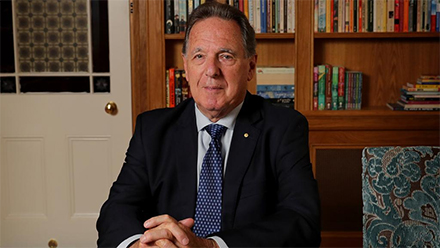Australians can have confidence that our sustainably managed native forestry operations provide all the environmental safeguards required by the Environmental Protection and Biodiversity Conservation Act (EPBC), according to Australian Forest Products Association (AFPA) Deputy CEO Victor Violante. Source: Timberbiz
Mr Violante was responding to criticism of the national RFA framework in Graeme Samuel’s review of the EPBC Act.
In his statutory review of the EPBC Act, required every 10 years, Mr Samuel said the laws need fundamental reform and a “sensible and staged pathway” is required to achieve the broad reform agenda, but urgent action is required including beefing up compliance and enforcement to stem wildlife losses.
The final report inserted two major recommendations since the interim report. It said the federal government should immediately create a new environment assurance commissioner, who could oversee bilateral deals where federal powers are devolved to state governments and be required to report to parliament regularly.
It also called for the removal of exemptions for the logging industry from the EPBC Act, which are created under Regional Forestry Agreements between state and federal governments.
Mr Violante said all forestry operations under RFAs are managed to extremely strict state environmental laws which are independently enforced.
“RFAs are required by law to be independently reviewed, and all the reviews have found that RFAs are meeting or exceeding environmental objectives while providing a level of certainty to industry,” Mr Violante said.
Also, all RFAs were reviewed and renewed in recent years to ensure that they remained up to date and reflected the latest available science and were amended accordingly.
Mr Violante said the RFAs delivered significant protections for the environment and threatened species when they were developed and continue to do so.
“Nationally, as a result of the RFAs and public land use decisions, over 13.6 million hectares have been added to Australia’s forest conservation reserve system. Meanwhile, timber harvesting operations occur on only a tiny fraction of Australia’s native forest estate, using the equivalent of just 6 trees out of every 10,000 annually, and every tree is replaced as the areas are regenerated and regrown by law,” he said.
Mr Violante welcomed the Samuel review’s recommendation that there should be greater clarity around the interaction between RFAs and the EPBC Act, to provide greater certainty for the tens of thousands of workers in our sustainable native timber industries.
“AFPA reiterates its plea to the Federal Government to provide certainty for timber workers and put an end to the lawfare that anti-forestry groups are waging,” he said.
“Closing down Australia’s sustainably managed native timber industry won’t stop the demand for quality appearance-grade hardwood timber for floorboards, stair-cases and furniture. It will just increase imports from countries with weaker regulations, including those where rainforests are logged unsustainably and illegally,” Mr Violante said.
The final report was handed to the Environment Minister Sussan Ley ahead of a looming Senate vote on a bill that aims to speed up development and boost the economy by cutting green tape.
Ms Ley said she would consider all Mr Samuel’s recommendations before responding and outlined the government’s previous commitments.






